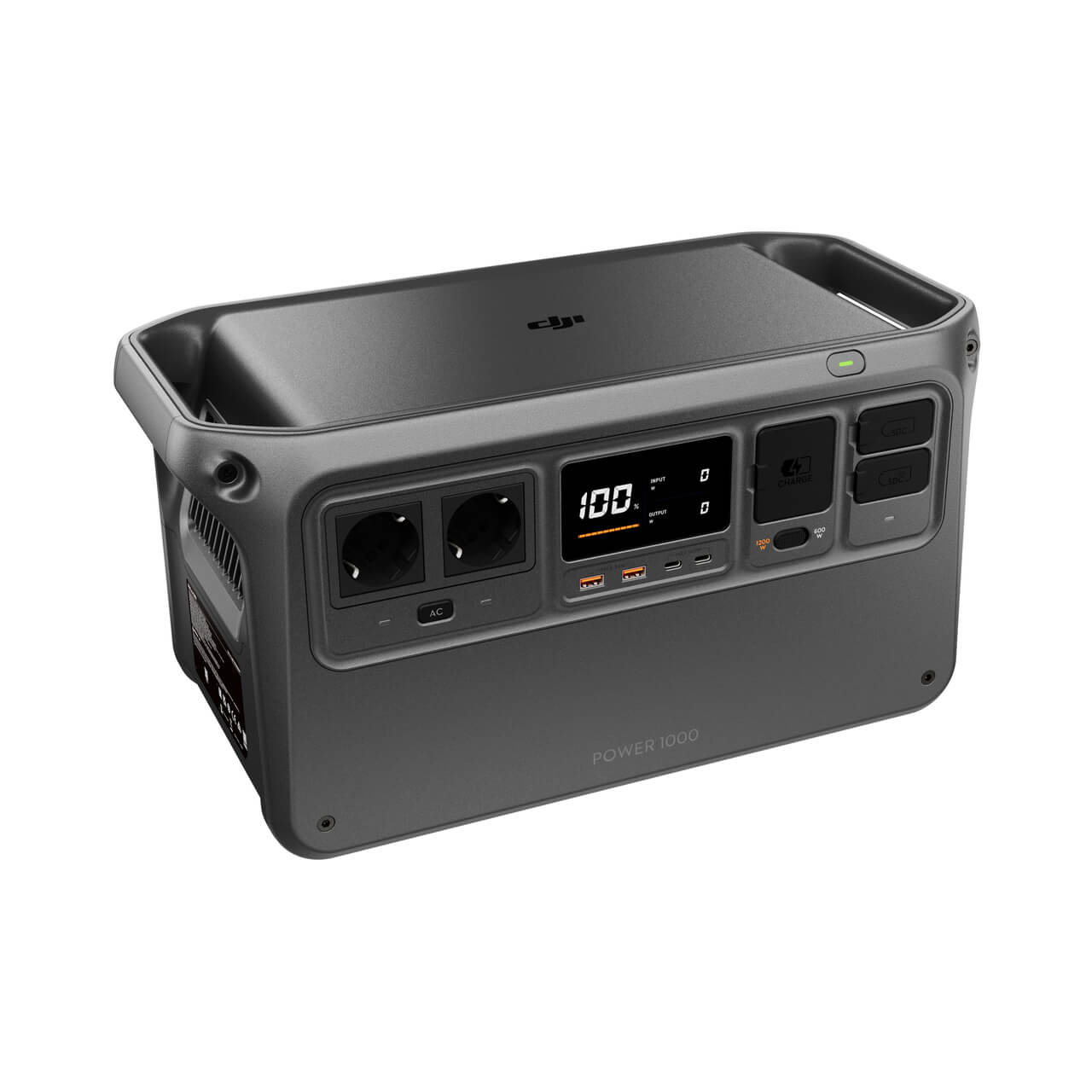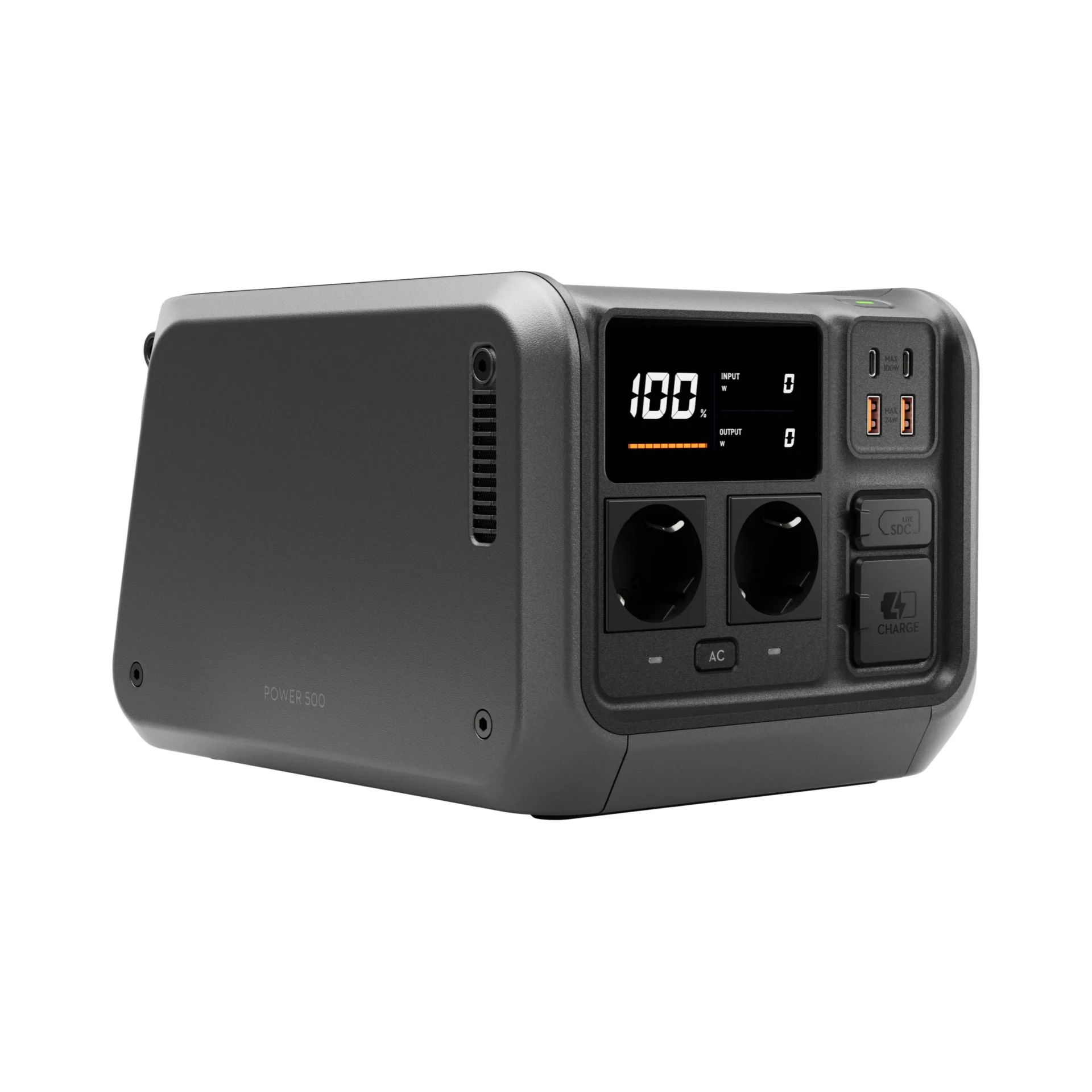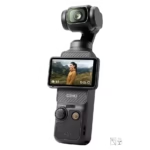Hello world! If you’re like me, whether you’re a drone pilot, a videographer on the go, or just a lover of outdoor weekends, there’s one thing that haunts us all: the battery bar flashing red. DJI, the brand that needs no introduction in the world of drones, has understood our anxiety and has landed on the portable power station market with its DJI Power range.
First we had the Power 500 and 1000, and now the new monster, the Power 2000, has just arrived. The family is now complete! But then, how do you find your way around? Is it just a question of size or are there real differences? Come on, let’s break it all down together to help you find the portable battery that’s REALLY made for you.

Beyond the Battery Backup: What is a DJI Power Station?
Before diving into the comparison, a little reminder is in order. A DJI Power Station isn’t just a big powerbank for your smartphone. It is a real pocket power plant. Think of it as a power outlet that you can take anywhere.
DJI’s big strength is the ecosystem. These stations are designed for us, the creators and drone operators. They can super-quickly charge DJI drone batteries (we’re talking about 30 to 80% in 30 minutes with the special SDC cable, a real game-changer!), but also power a laptop, a camping fridge, lights, and much more. All with the quality of manufacture and safety that we know from the brand.
🔋 DJI Power 2000
Capacity 2048Wh · Up to 3000W · Ideal vanlife & rescue

🔋 DJI Power 1000
1024Wh capacity · Up to 2200W · Perfect for camping

🔋 DJI Power 500
512Wh capacity · Up to 1000W · For day trips
The face-to-face: DJI Power 500, 1000 and 2000 on the grill
To make the right choice, you need to understand who each model is for. Let’s see what they have in their belly.
The DJI Power 500: The featherweight nomad
He’s the smallest, lightest, cutest of the bunch. The Power 500 is the perfect companion for day trips. Are you going on a few flights with your Mavic 3 or Air 3? It slips into a backpack and ensures you never run out of steam. It can charge multiple drone batteries, your computer to discharge your rushes in the field, and your phone. Simple, effective and above all, it will not break your back.
The DJI Power 1000: The Perfect Balance
Here is the potential bestseller (no pun intended). The Power 1000 is the happy medium. It doubles the capacity of the 500 without being a monster to carry. For a full weekend in a van, a multi-day outdoor shoot or to power a small base camp, it is perfect. It has enough juice to charge many drone batteries, run a laptop for hours, and even plug in a small electric cooler. This is versatility at its finest.
The DJI Power 2000: The quiet force
The newcomer is the workhorse. The Power 2000 doesn’t cut corners. With its 2048 Wh, we enter another dimension. It’s heavier, that’s a fact, but its power is phenomenal. It can power multiple power-hungry appliances at the same time, such as a microwave, kettle, or even DIY tools. For professionals on demanding shoots, van-lifers who want almost total autonomy or those who want a backup solution at home in the event of a power cut, this is the obvious choice. It even has optional casters, that’s saying something!

The comparative table to see more clearly
There’s nothing like a good old chart to visualize the key differences.
DJI Power Battery Comparison
| Characteristic | DJI Power 500 | DJI Power 1000 | DJI Power 2000 |
| Capacity | 512 Wh | 1024 Wh | 2048 Wh |
| Max Output Power | 1000 W | 2200 W | 3000 W (SDC Boost Mode) |
| Weight | Approx. 7.3 kg | Approx. 13 kg | Approx. 22.6 kg |
| Cooldown (0-100% on AC) | Approximately 70 minutes | Approximately 70 minutes | Approximately 80 minutes |
| Main ports | 2x AC, 2x USB-C, 2x USB-A | 2x AC, 2x USB-C, 2x USB-A | 2x AC, 2x USB-C, 2x USB-A |
| Ideal for… | Day trips, drone pilots, photographers | Weekends, content creators, camping | Pro, van-life, domestic rescue, big needs |
So, which one is right for you? Our Verdict
As you can see, there is no “best” model in absolute terms. The best is the one that fits YOUR needs.
- Are you a nomadic creator, a Sunday drone operator? You prefer portability for sessions of a few hours. The DJI Power 500 is your best friend. Lightweight and compact, it will give you the autonomy you need without taking up too much space.
- Do you often go away for the weekend? Are you a videographer who needs to power your setup (camera, computer, lights)? You’re looking for the best power-to-weight ratio. The DJI Power 1000 is the choice of reason. It’s the Swiss Army knife of the range, capable of doing almost anything.
- Are you an uncompromising professional, a van-lifer looking for autonomy or do you simply want the ultimate peace of mind? Budget and weight are not your first criteria. Race for the DJI Power 2000. It’s an investment, but its power and capacity will free you from any energy constraints.

Frequently Asked Questions (FAQs)
Can DJI drone batteries be charged quickly with all models?
Yes! All three stations are compatible with SDC fast charging for DJI drones (Mavic 3, Air 3, Inspire 3 series, etc.). All you need is the cable sold separately.
Are DJI Power Stations noisy?
They are very quiet in normal use. The fan kicks in when fast charging or when you pull a lot of power, but the noise is still quite reasonable, much like a computer working.
Can I use the station while it is charging?
Absolutely. This is called the “pass-through” or UPS function. You can plug your devices into the station while it is plugged into the wall. It’s super convenient.
Does solar charging work well?
Yes, all three models can be charged with solar panels (via an accessory or adapter). It’s ideal for being 100% autonomous in the middle of nature. Charging times will of course depend on the amount of sunlight and the power of your panels.
Is the Power 2000 really portable?
Let’s be honest, with more than 22 kg, you’re not going to go hiking with it. It is designed to be transported from home to the car, and then from the car to the shooting location or camp. For this, its handle and wheels (optional) are very practical.
I hope this comparison has enlightened you! DJI has really hit hard by offering such a consistent and capable range.






Leave a Reply